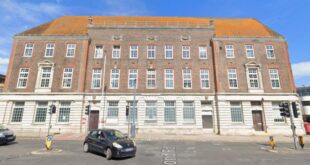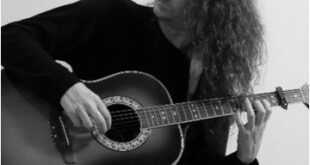THE death of the Duke of Edinburgh marks not only the passing of a long-life well-lived but also a link to a past which is fast receding into history. HRH Prince Philip has not only been the longest-serving consort but began his role at the side of Queen Elizabeth at a time when world leaders in office included Winston Churchill, Harry Truman, Joseph Stalin and Konrad Adenauer.
Born into the Greek and Danish royal families in 1921, he grew up in a household speaking English, French and German. Educated at Salem School in Germany, he followed its Jewish founder Kurt Hahn to Scotland following the Nazi takeover and attended Hahn’s new school at Gordonstoun, near Elgin, in Moray.
During the Second World War he served with the Royal Navy on the opposing side to two of his brothers-in-law and was mentioned in dispatches during the Battle of Crete. Serving in the Pacific at the end of the war he was present at Tokyo Bay when the Japanese signed the instrument of surrender.
Prince Philip and the future Queen Elizabeth, who had known one another since they were children in the 1930s, were married in 1947. What followed was a dedicated life at the side of the British monarch and their immediate family, which includes their four children, eight grand-children and 10 great-grandchildren. A constant in their lives, his passing will be difficult for them all and people’s thoughts will be with them in the days and weeks ahead.
In my decade as Westminster SNP leader I had many occasions to attend state events where the Duke of Edinburgh was present, including Remembrance Sunday commemorations at the Cenotaph – or as constituency MP when he attended RAF Kinloss as the station’s Honorary Air Commodore or his former school at Gordonstoun. He was, it has to be said, great company, personable, irrepressible with an impish sense of humour, which as has been well reported, sometimes went beyond the mark.
Prince Philip’s major impact for many has been with their transformational participation in the Duke of Edinburgh Award scheme, which was founded in 1956 and has been subsequently expanded to 144 countries.
The programme which is aimed at personal development for adolescents and young adults was based on a series of exercises promoted by Kurt Hahn. Since 1956 more than six million young people in the UK and eight million worldwide have taken part in the Duke of Edinburgh scheme which includes objectives in volunteering, physical activities, skills development, an expedition and at its gold level: a residential element.
Political parties in Scotland have been swift to suspend campaign activities for the Scottish Parliament elections, which will be held in less than four weeks’ time. First Minister Nicola Sturgeon said: “On behalf of the people of Scotland, I would like to express my deepest sympathy to Her Majesty The Queen and the rest of the royal family.
“Our thoughts are with them at this difficult time and their grief is shared by people across the country. The Duke of Edinburgh had deep and long-standing ties to Scotland, attending school here at Gordonstoun and regularly holidaying at Balmoral Castle.
The SNP leader said: “From his patronage of The Duke of Edinburgh’s Award Scheme, to his close association with the University of Edinburgh as chancellor for over 50 years and his commitments to countless charities and organisations, Prince Philip’s long contribution to public life in Scotland will leave a profound mark on its people.”
Just like other candidates elsewhere, my campaign in Edinburgh Central has been suspended for the time being. Volunteers are pausing the distribution of campaign materials and plans for next week are under review until the political parties agree a common way forward. Everyone wants to make the fitting and appropriate arrangements and be respectful of the circumstances. No doubt Prince Philip would have been amongst the first who would have encouraged people to get on with things. That time is not right now.
After a respectful suspension, democratic activity will resume as fully as Covid rules allow. In addition to the leafletting that all the parties have been undertaking, a degree of face-to-face campaigning is set to be permitted. Election addresses from the political parties have already started to be delivered by the Royal Mail and postal votes will be issued at the middle of the month. Up to 40% of the electorate are expected to vote by postal vote.
Before then, there will be much reflection on the life of Prince Philip. In the days ahead, my thoughts are with the Queen and royal family, as they are with all families who have lost loved ones at this time.



